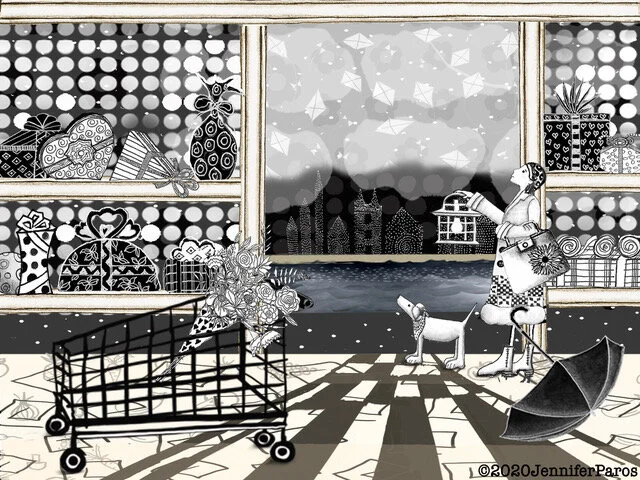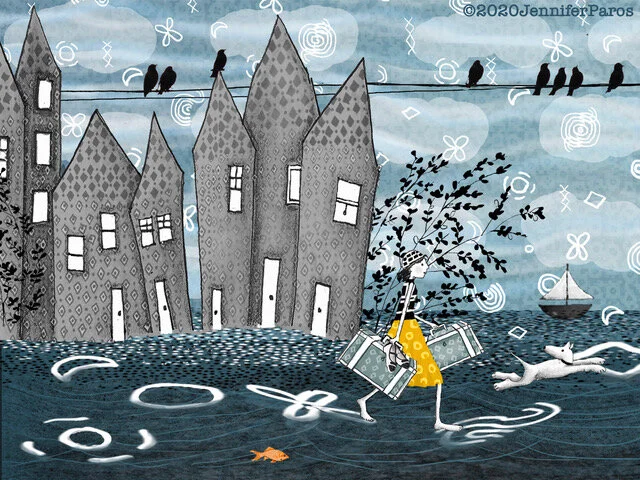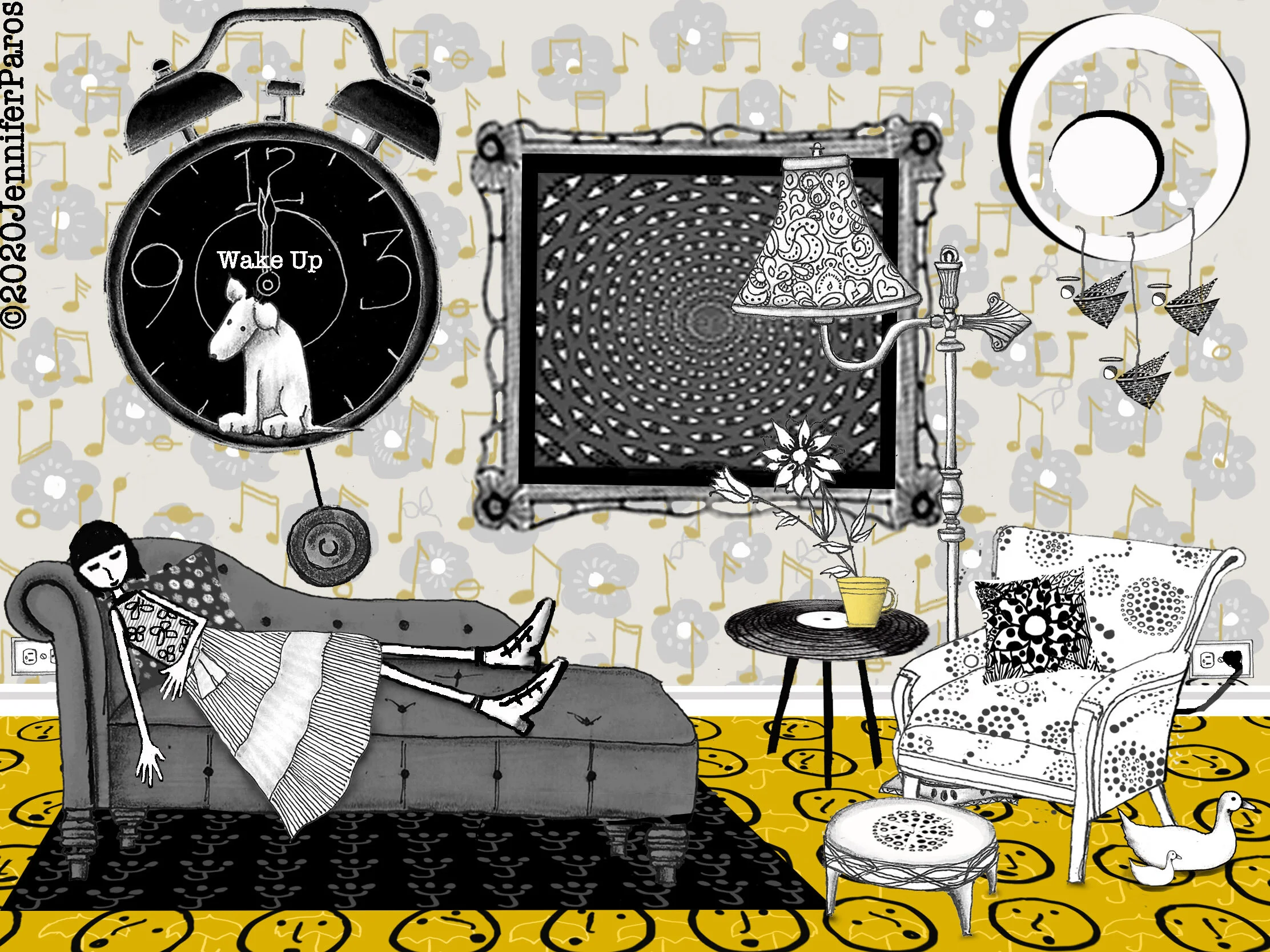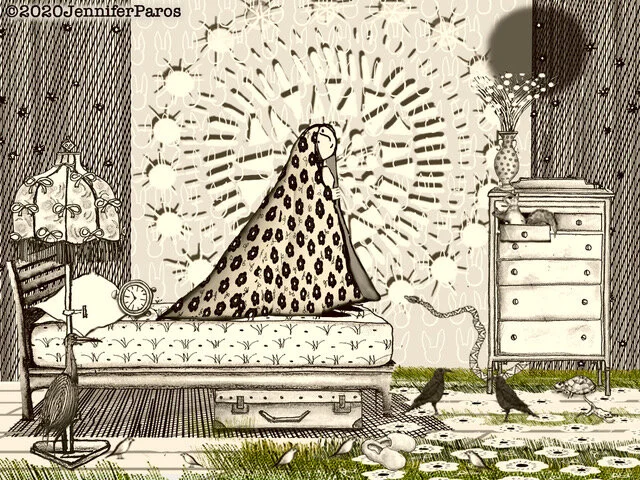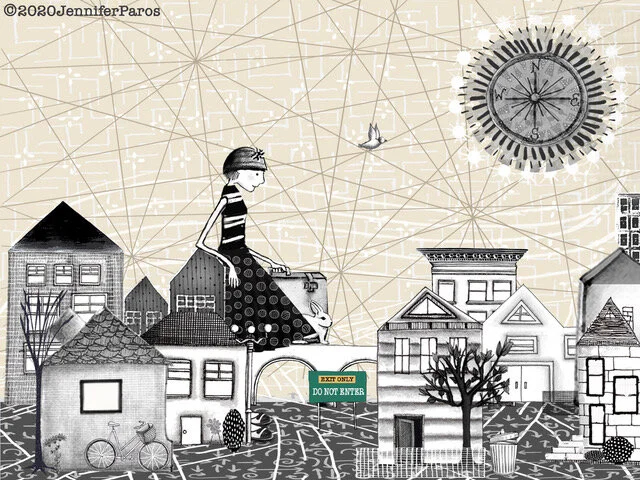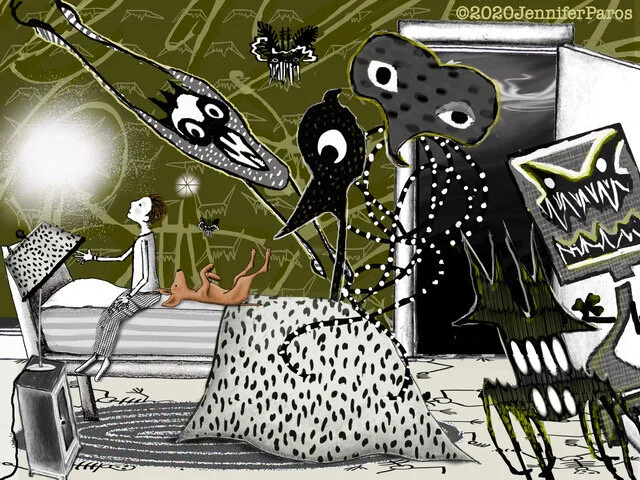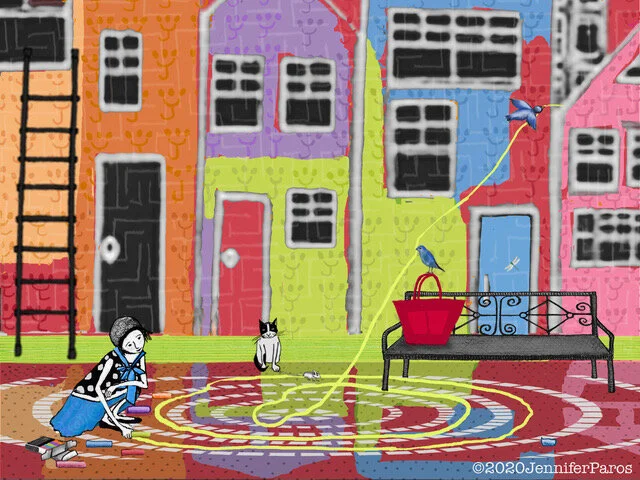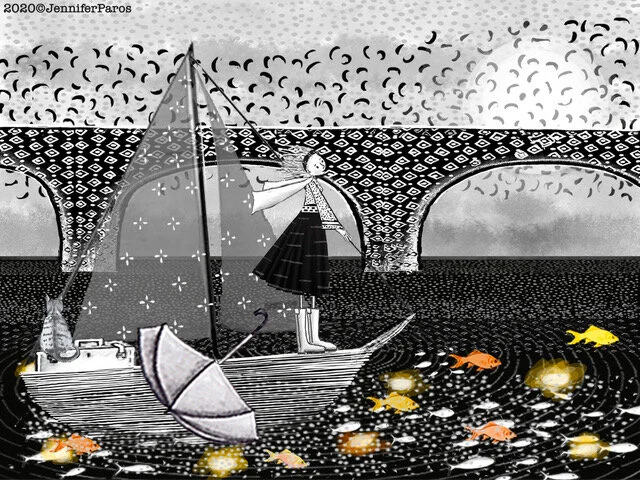Recently I took to playing a game with myself; I tried answering all of what seemed to be my unproductive thinking with, “You don’t have to worry about that.” The first time I thought it, I was surprised at how receptive I was to my own advice. And the more I employed the phrase, the more aware I became of what a high percentage of my thinking orbits around some form of fretting. I worry a lot, over the smallest of things – the minutiae of how to do, what to do, whether I should do, what I did. Tending the micromanagement of my fearful projections depresses my energy, so when I stopped, if only for a few minutes, I started feeling small surges of freed energy and my mood rose.
A couple days into my experiment, it was my turn to do our family’s weekly shopping. The grocery store where we shop is currently undergoing a complete redo. Almost everything is being moved: shelves dismantled; items relocated. The employees and patrons are often understandably fatigued and frustrated with the disorder. As I proceeded with my shopping, I quickly understood I could no longer rely upon my years-old mental map of the store to help me find what I was looking for.
Read More
